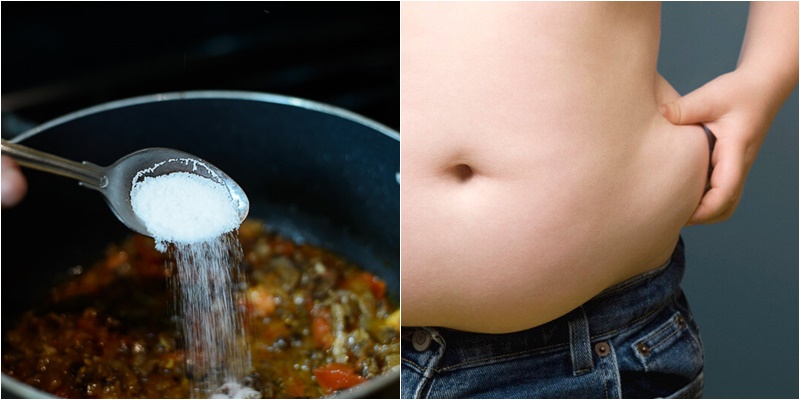## Does Eating Salty Food Cause Weight Gain?

According to scientists from Vanderbilt University in the United States, a diet high in salt causes the body to retain water and increase fluid production. This process requires energy, so to compensate, the body will need to consume more food or draw energy from muscle tissue.
To reach this conclusion, between 2009 and 2011, the scientists conducted a study on the effects of a high-salt diet on Russian astronauts. They increased the amount of salt in their diet by 6 to 12 grams per day.
The scientists observed that the astronauts drank very little water and often complained of hunger, requesting larger portions of food. Their weight also increased during the high-salt diet period.
Therefore, consuming excessive salt may lead to weight gain. To prevent this, it is advisable to adjust your diet by reducing the amount of salt you consume daily.
## How to Maintain a Healthy Diet Without Gaining Weight?

– As mentioned earlier, to maintain a healthy weight and diet, it is crucial to reduce the amount of salt in your meals.
– Avoid buying large quantities of vegetables, meat, and fish at once. Purchase fresh produce that will last for 3-5 days, and then restock with fresh items from the market or supermarket to ensure a constant supply of nutrients.
– Consume more vegetables, white meat, and less red meat and fat.
– Prepare soups, porridge, and other liquid dishes as they are easier to digest and allow the body to absorb nutrients more effectively.
– Eat smaller meals throughout the day instead of three large ones. This prevents extreme hunger, which can lead to overeating.
What You Need to Know About Chocolate
Despite its tasty flavor, there are long-standing concerns that eating too much chocolate may lead to weight gain and tooth decay. Despite this, chocolate continues to be a popular indulgence during holidays and a meaningful gift to share with loved ones. It is also a popular ingredient for beauty treatments.
Dangers of Repeated Use of Plastic Containers for Food Storage and Possible Weight Gain.
 Weight Gain.’>
Weight Gain.’>Be cautious when using plastic containers for food storage as it could lead to potentially dangerous health consequences, such as weight gain.


































